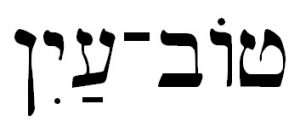by Lois Tverberg
The eye is the lamp of the body. If your eyes are good, your whole body will be full of light. But if your eyes are bad, your whole body will be full of darkness. If then the light within you is darkness, how great is that darkness! (Matthew 6:22-23 NIV)
 Often things Jesus says in the gospels make little sense until we understand that they are Hebraic idioms and even lead to wrong interpretations. For instance, in the passage above, it isn’t clear why Jesus is talking about our eyes. The descriptive word for eye is translated “single,” “sound,” “healthy” or “good.” Some New Age teachers have said that Jesus was talking about the third “inner eye,” developed through meditation. An opthamologist has written a book to say that Jesus was describing a neurological condition!
Often things Jesus says in the gospels make little sense until we understand that they are Hebraic idioms and even lead to wrong interpretations. For instance, in the passage above, it isn’t clear why Jesus is talking about our eyes. The descriptive word for eye is translated “single,” “sound,” “healthy” or “good.” Some New Age teachers have said that Jesus was talking about the third “inner eye,” developed through meditation. An opthamologist has written a book to say that Jesus was describing a neurological condition!
Jesus’ saying appears, however, to be a Hebraic idiom that was used to describe a person’s outlook towards others. A person with a “good eye” (tov-ayin or ayin-tovah) was a person who looked at others with compassion and had a generous spirit, and gave to others as needed. The person with the evil eye (ayin ra’ah) is one who is stingy toward others and greedy with money.
This expression is still used in Hebrew today. When people go through Jerusalem raising money, they say, “Please give with a good eye!” The same idiom is also found in Proverbs: “A generous man (Literally, “A good eye”) will be blessed, for he shares his food with the poor.” (Proverbs 22:9) Jesus also uses it at the end of the parable of the landowner who pays the workers all the same, no matter how long they work. The landowner says to the complainers, literally, “Is your eye evil (greedy) because I am good?” (Matthew 20:15).
Understanding this idiom helps us understand the whole passage in Matthew 6 that begins with “Do not lay your treasures up on earth,” then talks about the good/evil eye, and then ends with “One cannot serve two masters – both God and money.” All three of these sayings are part of a greater teaching on having the right attitude toward money.
Now we know what Jesus means in terms how we can be filled with light and darkness. If we love others and help them by sharing our money and time, our life will be full of light. If we think only of ourselves and our bank accounts, turning a blind eye to the needs of others, we will be blind indeed.
~~~~
See Listening to the Language of the Bible, by Lois Tverberg and Bruce Okkema, En-Gedi Resource Center, 2004. This is a collection of devotional essays that mediate on the meaning of biblical words and phrases in their original setting.
For a friendly, bite-sized Bible study of five flavorful Hebrew words, see 5 Hebrew Words that Every Christian Should Know, by Lois Tverberg, OurRabbiJesus.com, 2014 (ebook).




